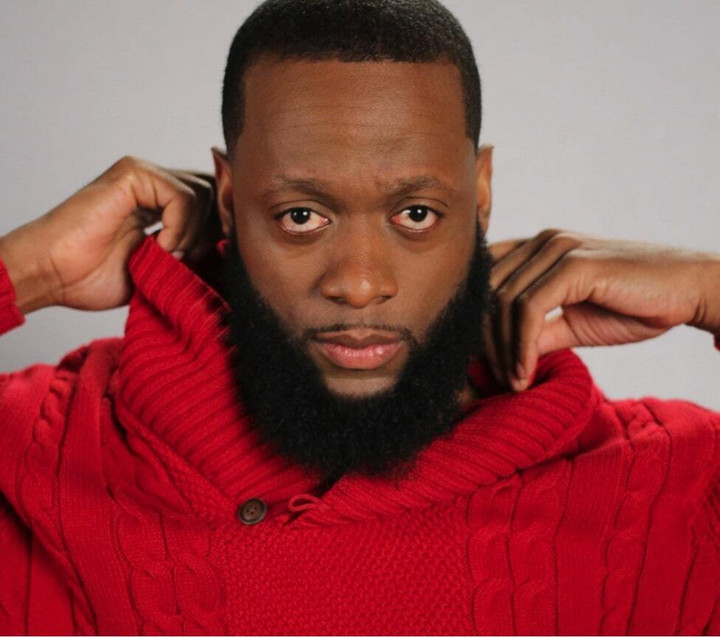Jive Poetic, MFA; Adjunct Faculty

Jive Poetic is part of the diverse tapestry of New York City's literary tradition, and this semester he is helping introduce St. Francis College undergraduates to that world.
An award-winning poet who has performed his work on PBS NewsHour, BET and in numerous arts events and venues around the globe, Jive is teaching his first course at SFC – Literature of New York – engaging students with the words of the city's varied writers, from James Baldwin and Audre Lorde to the Wu-Tang Clan and Notorious B.I.G.
Jive received his BA in Media Studies from the State University of New York at Buffalo, and his MFA in Writing and Activism from Pratt Institute. He is the founder of Insurgent Poets Society, Carnival Slam: Cultural Exchange, and the co-founder of the Brooklyn Poetry Slam. Jive is also the Friday night poetry slam curator and host at the Nuyorican Poet's Café. In 2017, he received the first John Morning Award for Art and Service.
As fall 2020 nears its close, Jive shared his observations about teaching and higher education.
You've been a guest speaker in SFC's MFA program and are a member of SFC's faculty in fall 2020. How did that come about?
Mahogany L. Browne, the MFA poetry coordinator, asked me if I was interested in teaching a course this fall. I agreed...and the ball started rolling from there.
What are you teaching?
Literature of New York, English 2590.
There is a pretty wide range in the works we're studying this semester. We've read things from James Baldwin to the Wu-Tang Clan, Audre Lorde, Jayne Cortez, and Notorious B.I.G. We're not just listening to the lyrics or looking at the words. We're placing writers in historical context: how did they document their environments and how have those environments changed. We're also using these writings to think about various social and political concerns affecting New York City and the larger society that contains it.
What's your approach to teaching?
I'm an artist first. I approach the classroom with the same creativity and flexibility I use when constructing my artistic projects. After developing a syllabus, I talk to the students for the first couple of classes. From here, I decide if I need to add or subtract writers depending on the needs of the group. I teach students to be active thinkers when observing their environments. There are questions I keep in circulation through their minds: what do these written works mean in relationship to the world where we live; also, what do they mean in the context of where they were created; how do we become active participants in the world around us, and how does this literature get us where we need to go?
What do you hope students get out of your class?
I'm interested in students creating conversations about the politics, mechanics, and subjects embedded within the works. If they relate to the content, I hope it brings more understanding to personal experience that lacked clarity. If they are unable to relate, I hope they gain a perspective they didn't have in the past.
For people who are constantly marginalized, and silenced, I want them to know there are other people living similar stories and it's ok to contribute their voices to the overall conversation; people care and want to hear about their experiences too. Ultimately, I want students to see that we should talk. We should express ourselves. We should write. We should document. We should archive. Think about how important their view of the world is right now. In 100 years, it's going to be so valuable to someone else...We all live in this city. Let's meet the writers. Let's be the writers. Let's talk about it.
Why is it important that higher-education institutions in general have diverse faculty?
I absolutely recognize the problems academia has in terms of representation and diversity. It is built on the labor of people it hasn't necessarily wanted to include in its classrooms, libraries, and offices; often when these voices are included it is because the institutions have been pressured. This should not still be the case. Many of us see the problem. The performance of wanting a solution is not as valuable as actively seeking and executing strategies that change culture. The academy needs to investigate and shed more of its exclusionary traditions and processes. It needs to dismantle and distance itself from the invisible fences it has built. I've seen what the college application process does to potential students from underserved communities; I've heard applicants say, when talking about higher educations, "this isn't the place for me, the professors aren't going to understand me. I won't get in." They are actually responding to a culture of exclusionary behavior. I think that needs to be disrupted a lot more. This process can start with an expansion of course offerings and pedagogical approaches; It can also happen by reimagining the type of professors who get hired and tenured. Let's develop the opportunities on all fronts. More diverse representation among faculty might attract more diverse students.
Schools need to take more risks. In some cases, colleges or universities want to be the first to discover cures for diseases, and new computing systems, but they are often late to the party when it comes to developing and installing innovative approaches to diversity.

